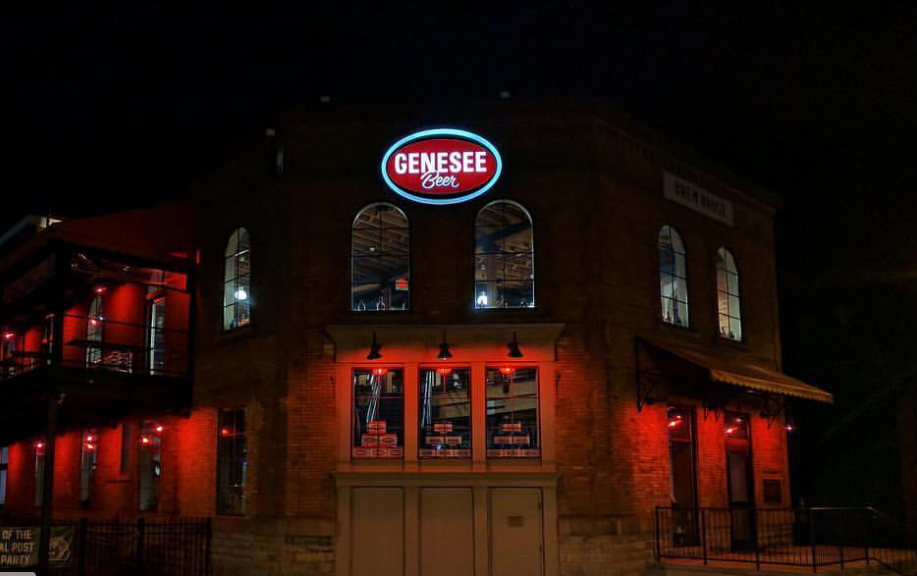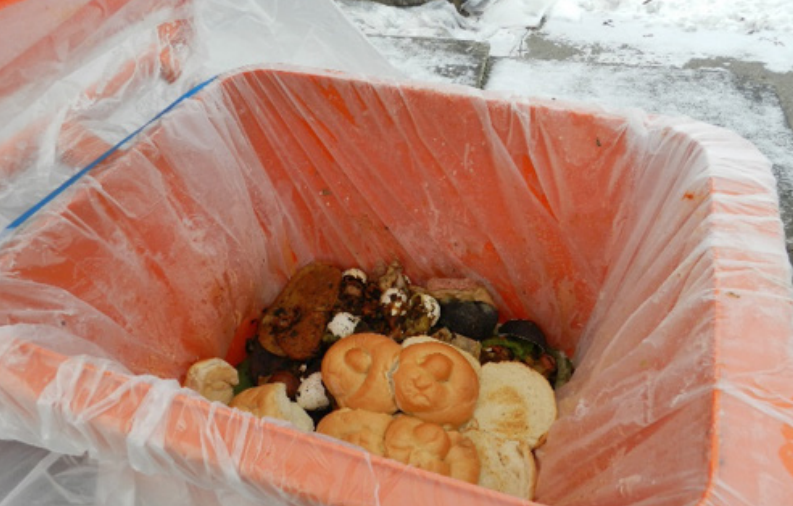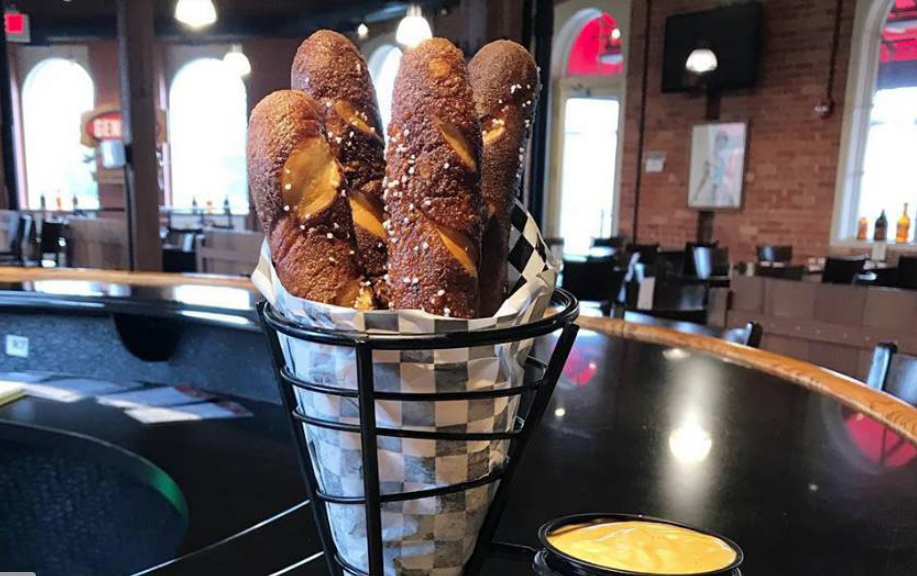Genesee Brewing Company
Genesee Brewing Company Improves Its Food Waste Reduction Operations
Genesee Brewing Company in Rochester is home to New York State’s oldest brewery, founded in 1878, and an affiliated pub-style restaurant with approximately 140 employees, called the Genesee Brew House. The brewery and restaurant both have programs to divert food waste. The restaurant sends food scraps to an anaerobic digester, and the brewery diverts the spent grain from the brewing process to nearby farms for animal feed.

Motivation
The Genesee Brewing Company was acquired by Florida Ice & Farm Co. (FIFCO) in 2013, which prioritizes sustainable waste diversion as part of their triple bottom line framework of “People, Planet, and Profit.” Genesee Brewing Company is proud of its long-standing history in the community and is motivated to serve as a meaningful example for social and environmental stewardship.

Solutions
The Genesee Brewery has been committed to continuously improving their operations for many years. As such, long standing practices as well as newly implemented ones are outlined below.
- Organics Collection and Anaerobic Digestion
After completing an environmental assessment project with NYSP2I, the Genesee Brew House began collecting and diverting their food scraps in February 2017. The restaurant contracted with Natural Upcycling to haul their food waste to a nearby anaerobic digester. Employees suggested reusing plastic “pickle buckets” to collect food waste from the kitchen and the dishwashing room. Staff empty the pickle buckets into orange carts provided by Natural Upcycling. Signage posted above the carts reinforces that they are only for food waste. As an extra measure, a magnetic strip attached to the top of food waste bins in the dish room catches silverware that might otherwise contaminate the food scraps. Natural Upcycling empties the carts two to three times per week, depending upon the time of year. Between February 2017 and July 2018, the Brew House has successfully diverted 50 tons of food waste from landfill.
- Training and Education
Natural Upcycling provided signage and training to help the restaurant roll out the food waste diversion program. The restaurant posted this signage, which indicates what materials can be placed in food waste bins, everywhere that food waste is generated, such as at kitchen prep stations, in the dishwashing room, and behind the bar. Instructions are also posted by the carts and elevators guiding custodial staff on how to efficiently move the carts outside for pickup.
Outside day-to-day operations, the Brew House also hosts four to five special events each year, for which they partner with Impact Earth to provide waste management services. Natural Upcycling and Impact Earth both provide the restaurant with reports to help employees visualize the diversion rates. An Impact Earth report for one summer 2017 event shows that the restaurant diverted approximately 170 pounds of food waste from disposal.
- Animal Feed
In a 24-hour brewing period, the brewery generates 180,000 to 240,000 pounds of spent grain, which is all sent to local dairy and pig farms via a spent grain broker. According to their Brewmaster, the Genesee Brewing Company has been diverting their spent grain to animal feed for more than 100 years.

Results
Each day, the restaurant diverts over 250 pounds of food waste for anaerobic digestion, while the brewery diverts about 120 tons of spent grain for animal feed. Management notes that incorporating employee input, such as in the placement of carts and use of pickle buckets, has also been integral to the success of restaurant’s waste diversion. Genesee Brewing Company will begin its financial review regarding the impacts of the added program starting this year. Genesee Brewing Company has developed into a leader for social and environmental responsibility within the City of Rochester as well as the regional brewery community.
Other Sustainability Initiatives
The restaurant and brewery recycle their single stream and cardboard through Waste Management, and the brewery recycles wood pallets. The brewery also completed a state-of-the-industry modernization project in 2017. As part of this effort, Genesee Brewing Company replaced its brewing equipment with brand new modular machinery, increasing process efficiency and significantly decreasing water consumption. Using the new process, the brewery revenue has increased due to reduced moisture content in the spent grain. Genesee Brew House aims to increase its community involvement and improve its environmental stewardship each year.
This summary was written by the New York State Pollution Prevention Institute (NYSP2I), in partnership with the Center for EcoTechnology. NYSP2I is a statewide research and technology transfer center funded by the New York State Department of Environmental Conservation. To ask about having a summary story written about your business, or to learn more about the NYSP2I Sustainable Food Program, contact us.





